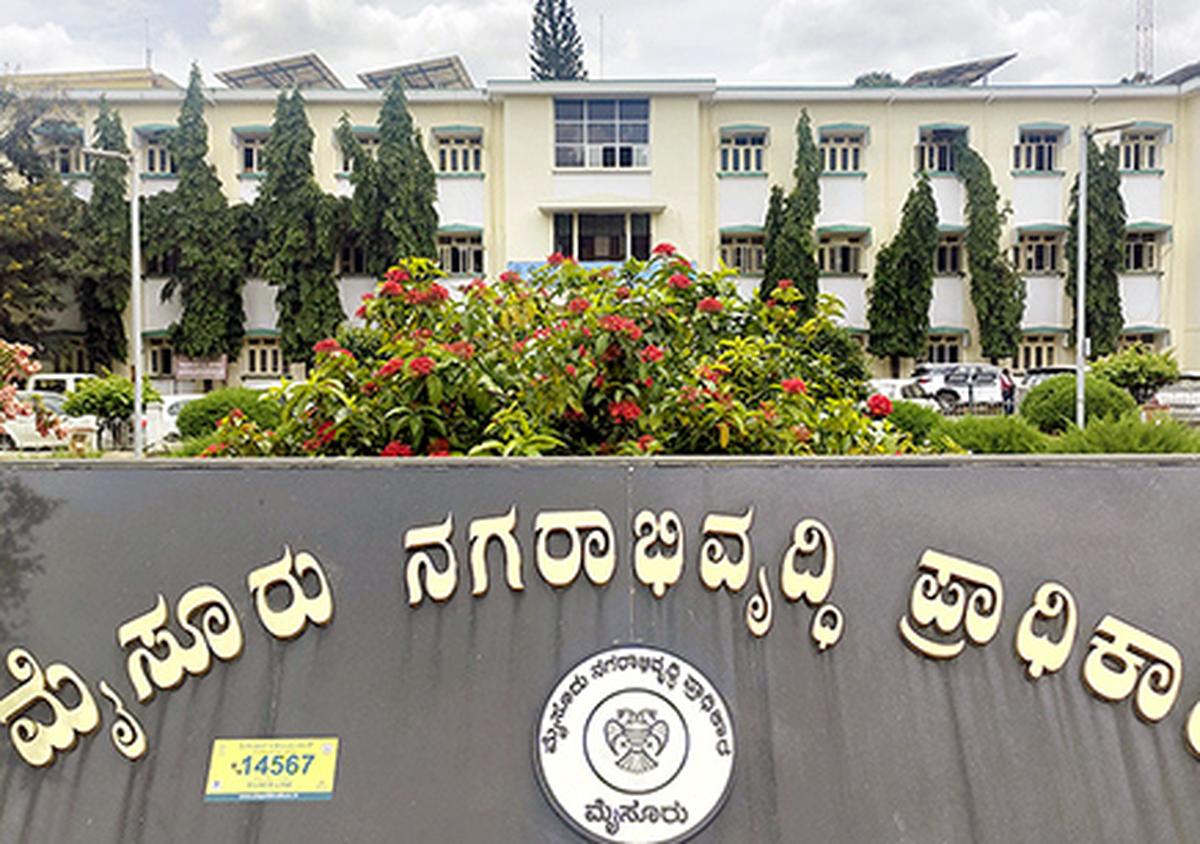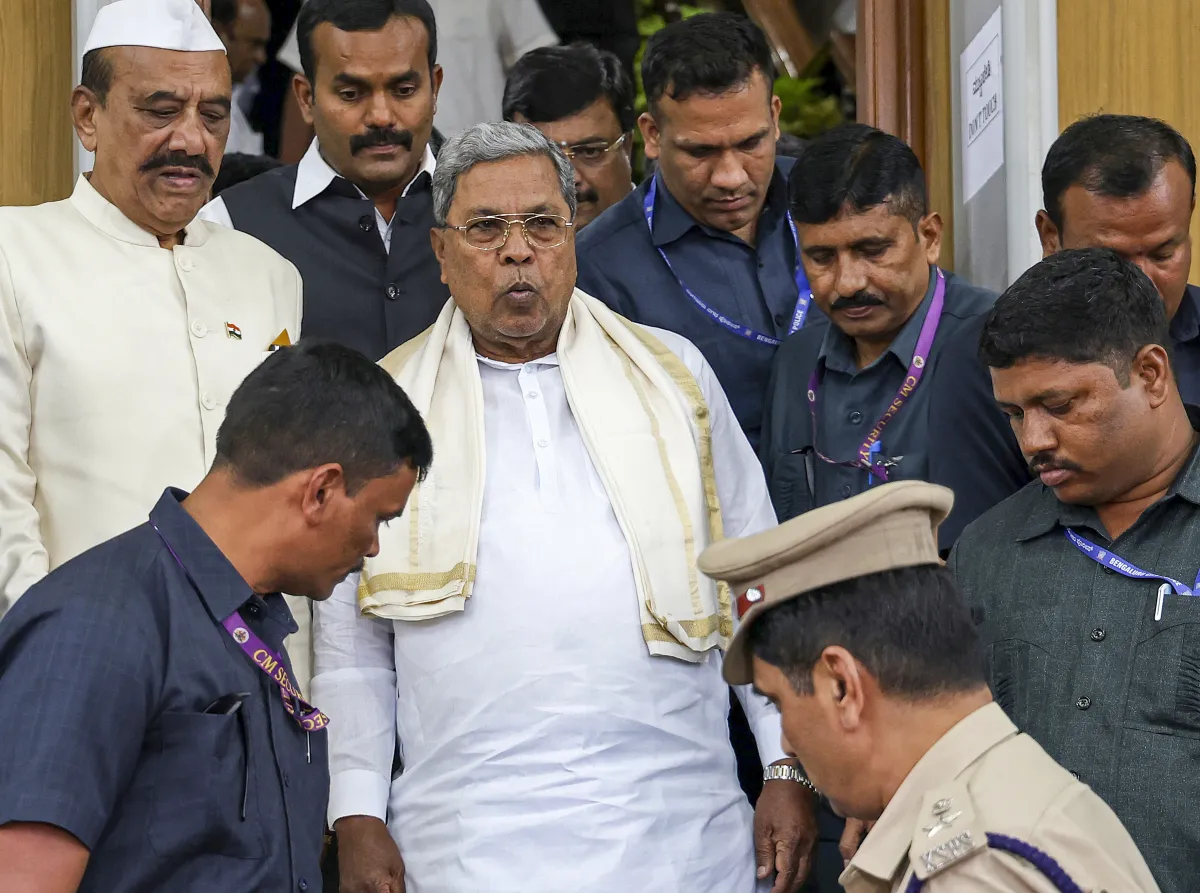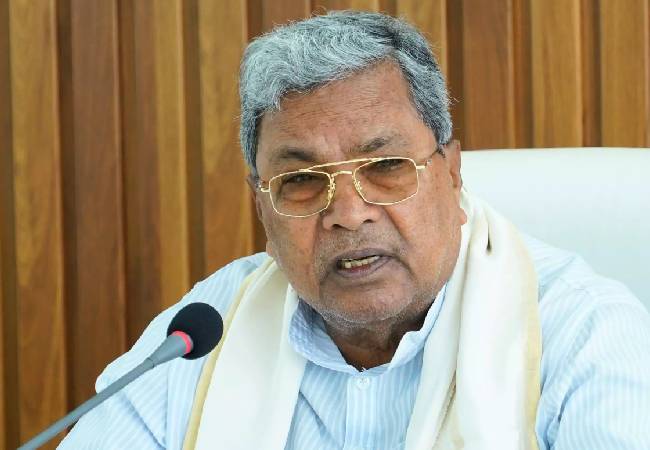The Desai panel’s report on the Mysuru Urban Development Authority (MUDA) case has sparked widespread debate after it provided a clean chit to Chief Minister Siddaramaiah’s family. The panel concluded that there were no irregularities in the land allotment involving his relatives, a decision that has drawn mixed reactions from political circles and the public. Supporters of the Chief Minister have welcomed the report as vindication, while opposition parties remain critical, claiming that the inquiry lacked transparency and was influenced by political considerations. The case, long a subject of contention, continues to dominate Karnataka’s political landscape.
The MUDA controversy centers on allegations that Siddaramaiah’s family members received preferential treatment in the allotment of prime plots of land. Critics alleged that rules were bent and processes sidestepped, raising questions about governance and ethics. The Desai panel, however, stated that the allotments were made in accordance with existing norms and that no undue favor was extended. This finding has offered relief to the Chief Minister, who had faced persistent accusations from his opponents. Yet, doubts persist among sections of the public who believe that the inquiry failed to adequately address larger concerns of political influence in urban land dealings.
For Siddaramaiah, the clean chit marks both a personal and political reprieve, especially at a time when his leadership is being tested by various controversies. His supporters argue that the panel’s findings reinforce his long-standing claims of innocence, framing the allegations as politically motivated attacks designed to weaken his position. The opposition, however, maintains that the report is incomplete and demands further investigation by independent agencies. The contrasting narratives highlight the deep political divisions in Karnataka, where land issues and governance remain recurring flashpoints.
The Desai panel’s report has injected fresh energy into Karnataka’s already heated political climate. With the clean chit to Siddaramaiah’s family, the Congress party has gained a defensive shield against opposition barbs. Party leaders argue that the allegations were designed to distract the government from developmental priorities. Still, the BJP and JD(S) have refused to let the matter rest, framing it as an issue of public morality rather than just legal compliance. Their leaders have vowed to keep pressing the matter in assemblies, media spaces, and public rallies, ensuring that the MUDA case does not fade easily from collective memory.
The broader context of land disputes in Karnataka adds to the sensitivity of this case. Urban development authorities across the state have long been criticized for irregularities, favoritism, and lack of accountability. For many citizens, the MUDA controversy is not just about Siddaramaiah’s family but about the perception that the powerful often benefit from a system inaccessible to ordinary people. Opposition leaders are tapping into this sentiment, suggesting that the government’s credibility is undermined when institutions appear compromised. They argue that unless stronger reforms are introduced, urban land management will remain an arena of distrust.

Observers note that the panel’s conclusions have come at a delicate moment, with Karnataka gearing up for civic body elections. Both ruling and opposition parties are using the MUDA issue to shape their campaign narratives. Congress hopes to frame it as proof that baseless allegations cannot derail governance, while BJP and JD(S) intend to highlight it as evidence of systemic rot. Voters, therefore, are likely to be exposed to contrasting storylines, each attempting to sway public opinion. The controversy may, in turn, influence electoral dynamics in key constituencies.
From a governance perspective, the case highlights the limitations of inquiry panels in dispelling doubts completely. While the Desai panel found no wrongdoing, critics argue that such panels often lack independence due to their formation under the executive. Legal experts suggest that an independent judicial probe would carry more weight and credibility. However, political analysts caution that such moves also risk prolonging controversies indefinitely, preventing governments from moving forward. The balance between closure and accountability remains at the heart of the debate surrounding the MUDA case and its fallout.
The public response has been divided along predictable lines. Congress supporters view the clean chit as vindication and celebrate it as a victory over political smear campaigns. Meanwhile, sceptical citizens question whether political influence shaped the panel’s work, pointing to a history of inquiries that have rarely indicted those in power. The media has amplified these divisions, with coverage reflecting both triumphalism and doubt. For ordinary residents of Mysuru, however, the episode has also renewed attention on how urban land is managed, with calls for more transparent and digitalized systems gaining ground.
Political Reactions and Public Debate Intensify
The opposition has been quick to dismiss the Desai panel’s conclusions, alleging that the inquiry was neither independent nor comprehensive. Leaders of the Bharatiya Janata Party (BJP) and Janata Dal (Secular) have called for a judicial probe to ensure impartiality. They argue that only a court-monitored investigation can settle the issue and restore public faith. Meanwhile, Congress leaders have rallied behind Siddaramaiah, asserting that the panel’s report clears all doubts and exposes the opposition’s attempts to malign the Chief Minister’s reputation. This clash of interpretations has set the stage for a protracted political battle in the state.
Beyond the political sphere, civil society voices have expressed concerns about the handling of urban land matters in Mysuru and other cities. Activists argue that the case points to larger issues of urban planning, governance, and equitable land distribution. Even if the Chief Minister’s family is cleared, they say, the incident underscores the need for reforms in institutions like MUDA. Transparency in land allotment processes, digital monitoring, and independent oversight are being suggested as measures to prevent misuse of authority. These discussions reveal that the MUDA case is not just about individual allegations but also about systemic gaps in governance.

Broader Implications for Governance in Karnataka
The clean chit to Siddaramaiah’s family is likely to have far-reaching political consequences in Karnataka. While it bolsters the Chief Minister’s immediate standing, it does not fully close the chapter on questions of accountability and transparency in governance. Opposition leaders have vowed to continue raising the issue in legislative and public forums, ensuring that it remains in political discourse. For the people, the episode serves as a reminder of the importance of trust in governance and the need for robust checks on power. As the debate continues, the MUDA case stands as both a political and institutional test for Karnataka.
In the legislative space, opposition members are expected to demand debates and question the government on MUDA’s functioning. They are likely to seek reforms, audits, and disclosures on land allotments in other urban bodies as well. The Congress government, in turn, is likely to emphasize its commitment to transparency and highlight ongoing development projects to counterbalance the criticism. The friction between accountability and governance efficiency is likely to dominate future assembly sessions, further polarizing Karnataka’s political environment.
The controversy has also created ripples beyond Karnataka, with national-level observers noting how land-related scandals often affect the image of state governments. For Siddaramaiah, the timing of the clean chit may offer temporary relief, but the persistence of opposition attacks means that his administration cannot afford complacency. Congress’s central leadership may also leverage the outcome to project the state government as being unfairly targeted by rivals, strengthening its larger narrative of resilience. Whether this will resonate with voters depends on how the issue evolves in the coming months.
Civil society groups have urged that the case be viewed as an opportunity for systemic reform rather than just political mudslinging. They argue that unless structural changes are made in institutions like MUDA, controversies will continue to erupt regardless of which party is in power. Suggested measures include digitizing allotments, establishing independent monitoring bodies, and involving citizen groups in oversight. Activists point out that only by depoliticizing such institutions can public trust be restored in the long term. Without reforms, the MUDA case will be remembered as yet another unresolved controversy in Karnataka’s political history.
At a personal level, the clean chit shields Siddaramaiah’s family from ongoing reputational damage. His supporters hope this closure will allow him to focus on governance rather than firefighting scandals. Yet, political strategists caution that the opposition’s persistence means the issue may resurface whenever convenient. This reflects a broader pattern in Indian politics, where even resolved cases are revived for electoral advantage. For Siddaramaiah, therefore, the challenge is not only about surviving this controversy but also about demonstrating proactive leadership that minimizes future vulnerabilities.

Ultimately, the MUDA case illustrates the intersection of law, politics, and governance in Karnataka. The Desai panel’s findings may close one chapter, but they leave open larger questions about institutional accountability and public trust. The clean chit might help the Congress government in the short run, but without deeper reforms, it risks being seen as a temporary fix rather than a genuine resolution. The opposition’s determination ensures that the issue will remain in political play, while civil society continues to push for systemic changes. In this sense, the MUDA case is less an endpoint than a starting point for wider debates on governance.
Follow: Karnataka Government
Also read: Home | Channel 6 Network – Latest News, Breaking Updates: Politics, Business, Tech & More

